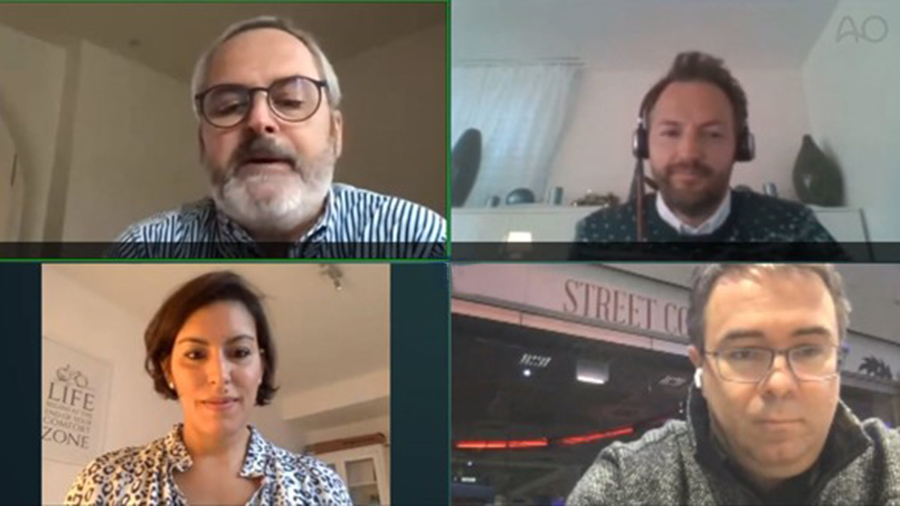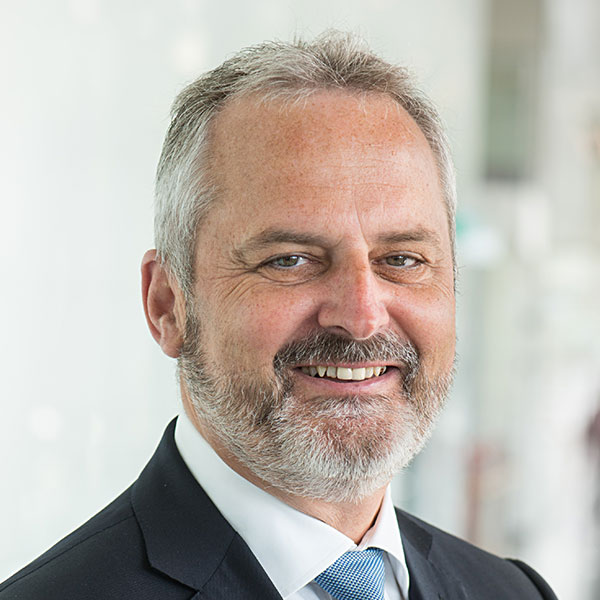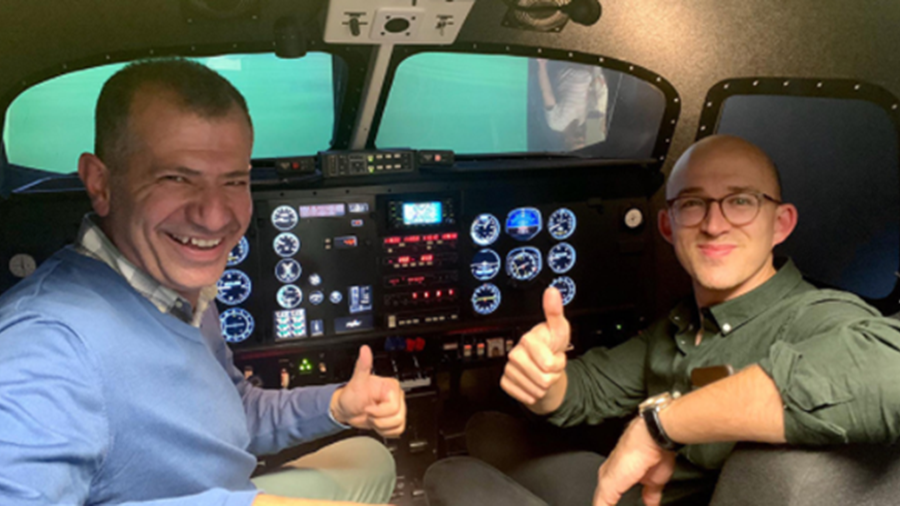Creating a culture of safety: From the cockpit to the operating room, the same principles apply

When boarding an airplane or being rolled into surgery, we place our lives in the hands of experts, trusting they know best what to do in an emergency. But how does this look from the perspective of the attending team? AO President-Elect Florian Gebhard talked recently with human factors experts, pilots, and surgeons about how the right team, the right leaders, and a culture of trust are fundamental in creating a safe and efficient working environment.
Gebhard believes his generation will be the first to recognize that old hierarchies may not be ideal, and that leadership and hierarchy will change dramatically in the years ahead. He suggests a more standardized approach to developing the skills that create a culture of trust in the operating room.

“Starting a surgery is like preparing an aircraft for takeoff. In medicine we do have that trust culture, but it is less structured. In surgery you choose team members you trust because you’ve done surgeries with them, and you couldn’t change them out and still have a perfect functioning team.”
Florian Gebhard, AO Foundation President-Elect
People need to be seen
The pandemic hit many industries hard, and none quite like the aviation industry. Martin Egerth, a senior human factors expert at Lufthansa Aviation Training Switzerland, says it is heartbreaking to see grounded aircrafts, and the fear and uncertainty that this creates for the crews.
"But we all know that the future is out there. We will fly again one day, and medicine too will return to some kind of ‘normal,’" he says.
The pandemic has also highlighted the importance of empathy. A few months ago, Egerth asked 100 people what is important to them as patients in hospital.
"First, they mentioned expertise and competence. They then spoke about being taken seriously, having trust in their medical team, and not being treated like a number,” he explains. “Empathy is a simple concept but not everyone is empathetic. Some things can be learned and often it’s the small things: saying hello, saying thank-you, really seeing the other person."
Trauma surgeon Matthias Muenzberg agrees. He is part of the COVID-19 crisis team in his hospital in Ludwigshafen, Germany, and has seen it closely.
"This crisis has highlighted where we lack in interpersonal competencies like leadership and communication. In medicine we tend to focus on perfecting our technical skills, but our patients need communication and information,” he says. “They look for leadership to get us through this."
Leaders are also team players
Henry Ford is famously quoted as saying that coming together is a beginning, keeping together is progress, and working together is success. Lufthansa pilot Leila Belaasri reminds that trust and teamwork do not happen automatically.
"We work hard on it every single flight of every single day. It’s the task of the leader in the cockpit to promote this to the whole crew, to invite them to speak honestly about everything, starting with mistakes,” she says. “We are human beings and have limitations in performance and we address that and accept it."
“We need people who give others the feeling that we support each other. Success is based on cooperation.”
Leila Belaasri, Lufthansa pilot
Aviation—like surgery—needs people who can make decisions and lead teams, but who are also willing to create an atmosphere of openness, trust, and communication.
"We need people who give others the feeling that we support each other. Success is based on cooperation," Belaasri continues. "We identify with those values and we live to them. We look for team players who support integration and integrity. We need each other to survive this thing."
Egerth adds inspiration, which he finds extremely important, to the crucial competencies.
"The wrong leaders can destroy so much. We saw in the pandemic that we must be there for each other, mentor one another. The more experienced can become a mentor to the next generation. We cannot easily change the system but as Gandhi said, 'If you want to change the world, start with yourself.'"
Bring out the best in your people
Ideally, leaders have an opportunity to create psychologically safe teams where everyone can speak up and be creative without fear of being punished.
"In doing so it’s important to pick the right people," Egerth points out. "And that’s not always the people from the best universities but people who share the values of the team."
Another similarity between pilots and surgeons is that training never stops. There are three elements to successful pilot training, Belaasri explains.
"First, technical—knowing your aircraft and systems. Second, knowing your procedures precisely. Third, interpersonal competence," she says. For the first two there are four mandatory check flights a year, and the training philosophy is to train to proficiency. "So, some mistakes are expected, and it’s about how as a team we can handle those. Every single flight is training because we debrief one other. Learning is a lifelong opportunity to improve yourself. The mindset in training should be that everybody is responsible for the outcome, not just the leader. Even well experienced professionals must accept and reflect on feedback, so we all learn from each other," Belaasri concludes. "Safety is everyone’s job."


